MOJO NIXON’S UNIQUE BRAND OF MUSIC AND CHAOS



MOJO NIXON’S UNIQUE BRAND OF MUSIC AND CHAOS



ince the beginning of the 20th century, each generation has had a war that defined their times. World War I was known as the war to end all wars, and the Greatest Generation fought through World War II. During these conflicts, the world was united in a fight of good against evil.
The Vietnam War was different. Big cultural shifts were occurring in the 1960s, questioning the morality of the war.
During those years, Coronado was a small, primarily Navy town. It felt quiet and safe, sheltered from the storms of change. For many Coronado families, deployment to Vietnam was real. My family said goodbye to my dad for a year when he went to Vietnam.
At home, we watched the news, saw the fighting, the casualty lists and the turmoil of antiwar sentiment. As a kid, it was hard to grasp, but it became more real when a classmate’s father was shot down and captured by the North Vietnamese. I assumed their prison camp wasn’t like the sitcom “Hogan’s Heroes,” but at least, I thought, they were together with a roof over their heads and food. Little did I know.
By the late ’60s, wives of prisoners of war were demanding answers from Washington about the welfare of their husbands. They brought to light the prisoners’ horrible living conditions and torture. In solidarity, I proudly and faithfully wore my POW bracelet.
When the Paris Peace Accords were finally signed in January 1973 ending the war, I had three classmates whose fathers were POWs. The feeling of relief was palpable in Coronado.
The war was a backdrop of my childhood, but my memories of POWs defined those years for me. Over the years, I’ve had the opportunity to meet the former POWs from Coronado. The strength of those men and their families will always be remarkable.
Respectfully,
LeslieMARCH 2023
12
COVER STORY
12 'THE GUY HOWLING IN THE WOODS' Mojo Nixon charts own path with a sound that combines punk rock and hillbilly music
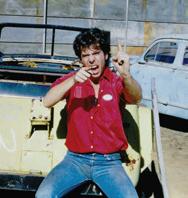
FEATURES
4 HOMECOMING'S GOLDEN ANNIVERSARY
Coronado Historical Association commemorates the release of Vietnam POWs with a new exhibition
4
34 POETIC LICENSE
Ode to Coronado has John Philip Sousa playing at Tent City. Was he really there?
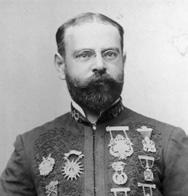
DEPARTMENTS
20 DID YOU KNOW?
Coronado Public Library's online offerings.
24 MADE IN CORONADO
Cathy Surgeoner Deibler paints from the heart.
32 LOOKING BACK
This month in Coronado history.
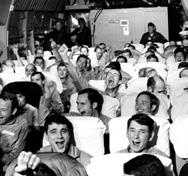
34
ON THE COVER Mojo
38 FROM THE GROUND UP
What you need to know about spring gardening.
44 BEACHCOMBER Osprey.
46 MILITARY
La Jolla Music Society offers healing through harmony.
PUBLISHER
Now and Then Publishing LLC
EDITOR
Leslie Crawford
CREATIVE DIRECTOR/MANAGING EDITOR
Martina Schimitschek
COPY EDITOR
Rose Wojnar
CONTRIBUTORS
David L. Coddon, Michelle Delaney, Gina Petrone, @coronadobeachcomber
Visit
CORONADO’S AWARD-WINNING MAGAZINE
MARCH 2023 » VOLUME 2 » ISSUE 3
CONTACT

editor@coronado365.com or (619) 435-0334
ADVERTISING
To advertise, contact Leslie Crawford at leslie@Coronado365.com or advertising@Coronado365.com

CORONADO 365 is a division of Now and Then Publishing LLC, 830 Orange Ave., Suite B, Coronado, CA 92118
Copyright ©2023 Now and Then Publishing LLC
All rights reserved. Reproduction of any material in whole or in part without written permission is prohibited.
Coronado 365 is available nationally. For subscriptions go to Coronado365.com or email subscriptions@coronado365.com
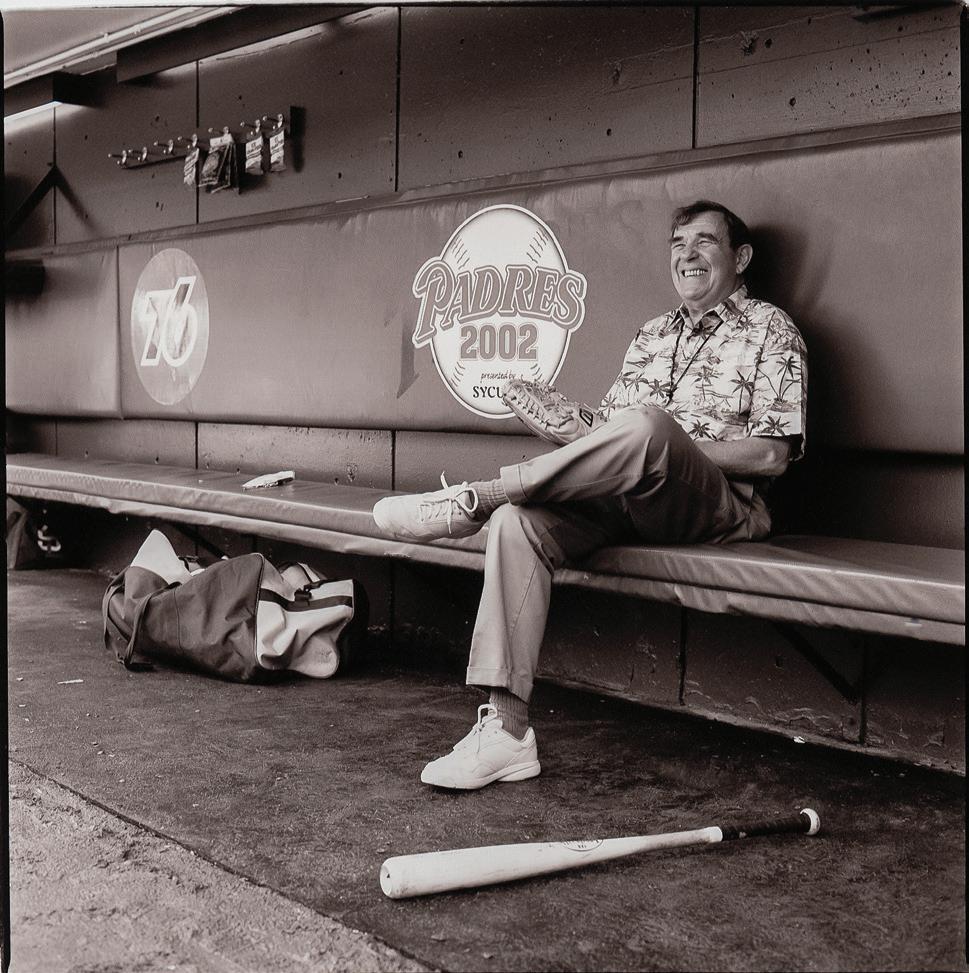
Ahalf a century has passed since the last Vietnam prisoners of war returned to the U.S. through Operation Homecoming.
Altogether 591 men — 325 Air Force, 77 Army, 138 Navy, 26 Marines and 25 civilians — were released and returned home between Feb. 12 and March 29, 1973. Some were in prison for months; but for many, it was years.
When they touched down on home soil, a lot had changed in America for the men held an average of five years at the Hoa Lo Prison, better known as the Hanoi Hilton. The prison held its first American POW in 1964.
While the men were struggling to survive, often in solitary confinement, the
country had undergone a cultural shift. During this time, the first man walked on the moon, Attorney General Robert Kennedy was assassinated, three days of peace and love at Woodstock rocked the music world and Thurgood Marshall became the first black Supreme Court justice.
Retired Navy Capt. John Ensch sees himself as one of the lucky ones. He was held prisoner for less than a year.
Ensch had flown 284 successful missions as a radar intercept officer when on Aug. 25, 1972, a surface-to-air missile took down the F-4 Phantom fighter plane piloted by Lt. Cmdr. Michael Doyle over North Vietnam. Both ejected from the plane, but only Ensch made it back home.
“I don’t think it took me very long after
my return to feel re-assimilated. I was lucky that I was shot down in the last year of the war, so things in the U.S. hadn’t changed that much before I returned,” Ensch said via email.
Ensch is one of 30 POWs profiled in the Coronado Historical Association exhibition “Open Doors: Vietnam POWs Fifty Years of Freedom” opening this month to commemorate the 50th anniversary of the homecoming. The photos and write-ups of the 30 men were created for the original “Open Doors” exhibit in 2003 for the 30th anniversary of their return. Displays on the men’s time in prison and the home-

coming in Coronado have been added for the current exhibition.
The 30th anniversary exhibition was the project of childhood friends Taylor Kiland and Jamie Howren. Kiland is a writer and Howren a photographer.
Unlike many exhibitions on POWs, Kiland and Howren didn’t focus on the captivity, but rather how the men rebuilt their lives after living through the nightmare of prison and torture.
“Our goal was to capture each subject’s personality and redefine the lingering negative stereotype of POWs being downtrodden and suicidal. These men were
incredibly successful,” said Kiland, who spent part of her childhood in Coronado and now lives in Alexandria, Virginia. Kiland, a former Navy officer, is an author and ghostwriter.
“This entire exhibition is about resilience,” said Christine Stokes, the Coronado Historical Association’s executive director. “It is what they felt at 30 years; happiness of family and a duty to give back to the nation.”
Three of the five POWs who returned to Coronado are profiled in the exhibition: Vice Adm. Edward Martin, Capt. Ernest “Mel” Moore and Vice Adm. James
What: “Open Doors: Vietnam POWs Fifty Years of Freedom”

Where: Coronado Historical Association, 1100 Orange Ave.
When: March 3 through Sept. 15
Admission: free
Information: (619) 435-7242 or coronadohistory.org
Stockdale. Capt. Harry Jenkins and Cmdr. William Stark also returned to Coronado but weren’t part of the exhibition. All five are now deceased. A lieutenant when he was shot down,
Ensch stayed in the Navy and eventually served as the commander of the Naval Training Center in San Diego before his retirement as a captain in 1995.
“I returned home having limited use of both elbows and sans a left thumb. Therefore, I had to undergo nine months of medical treatment and physical therapy before the subject of my staying in the Navy could be addressed. The decision for me for staying in the Navy was whether or not I could be returned to flight status,” Ensch recalled.
“I’m a naval flight officer and not in control of flying the aircraft. I proved to the Navy that I could still effectively and successfully operate all functions in the rear cockpit of a fighter aircraft without my left thumb. Thus, I was able to get back on flight status and continue my career. It was a fabulous feeling to get back in the cockpit and fly again.”
After he left the Navy, the now 85-yearold San Diego resident joined the San Diego Padres as director of military marketing. Howren captured him sitting in the dugout at Qualcomm Stadium, where the Padres played prior to Petco Park.
Howren, who is director of events and marketing for Lyon Air Museum in Orange County, photographed the men on film with a Hasselblad camera. The negatives were printed by hand on fiber-based paper and then sepia-toned by hand.
“We were celebrating who they were after captivity,” Howren said. “Trust was a big thing with the men. It was very organic. One interview and shoot led to another.”
Kiland got to know numerous former POWs as she volunteered for Sen. John McCain’s 2000 presidential run. At the time, most of the interviews of the men focused only on their experience as prisoners and not what they accomplished after their return, Kiland noticed.
“The POW experience influenced my perspective on life by giving me a better appreciation for life — not to take it for granted. And, to not waste it. It was almost like having died and then being given a second chance at life,” Ensch said.
“I view these men as national treasures,” Kiland said. “I continue to be in awe of the experience they went through and how physically and mentally healthy they
“I was lucky that I was shot down in the last year of the war, so things in the U.S. hadn’t changed that much before I returned.”
RETIRED NAVY CAPT. JOHN ENSCH

were despite their experience.” Today only about half the men, now in their 80s and 90s, are still living.
The most surprising thing Kiland discovered was the low rate of PTSD among Vietnam POWs. According to The Robert E Mitchell Center for Prisoner of War Studies, based in Pensacola, Florida, this group of men has the lowest rate of post-traumatic stress disorder of any veterans.
Ensch attributes this to the fact that most of the North Vietnam POWS were aviators who were older, more mature and more educated. He also attributed it to leadership.

“This group maintained their military
structure in captivity against all odds. And they maintained a good communication system, so the POW leadership could pass along instructions and resistance tactics. We were just continuing to fight the war in a different manner,” he said. (The prisoners used a tap code to communicate between cells.)
“Open Doors: Vietnam POWs Fifty Years of Freedom” also includes displays on the captivity and the homecoming in Coronado. Lt. Col. Tony Marshall, who was part of the original “Open Doors” project, is loaning items he kept from his time in captivity, Stokes said. Locals who remember the homecoming have had a chance to contribute their memories, photos and keepsakes.
The original “Open Doors” display is now part of the historical association’s permanent collection. After the Coronado Historical Association exhibition 20 years ago, “Open Doors” traveled the country for a year. It was then purchased by tech security company CACI International and displayed at its Virginia, headquarters. CACI has donated the display back to the historical association.
“I'd like for folks to come away from the ‘Open Doors’ exhibit with a better and more appreciative understanding of the courage, honor, commitment of and the sacrifices our military has made for this country; not only the POWs, but all who have, are and will serve when called upon to so,” Ensch said. “The military doesn’t declare war, the politicians do. The military just faithfully carries out the decisions made.” ■

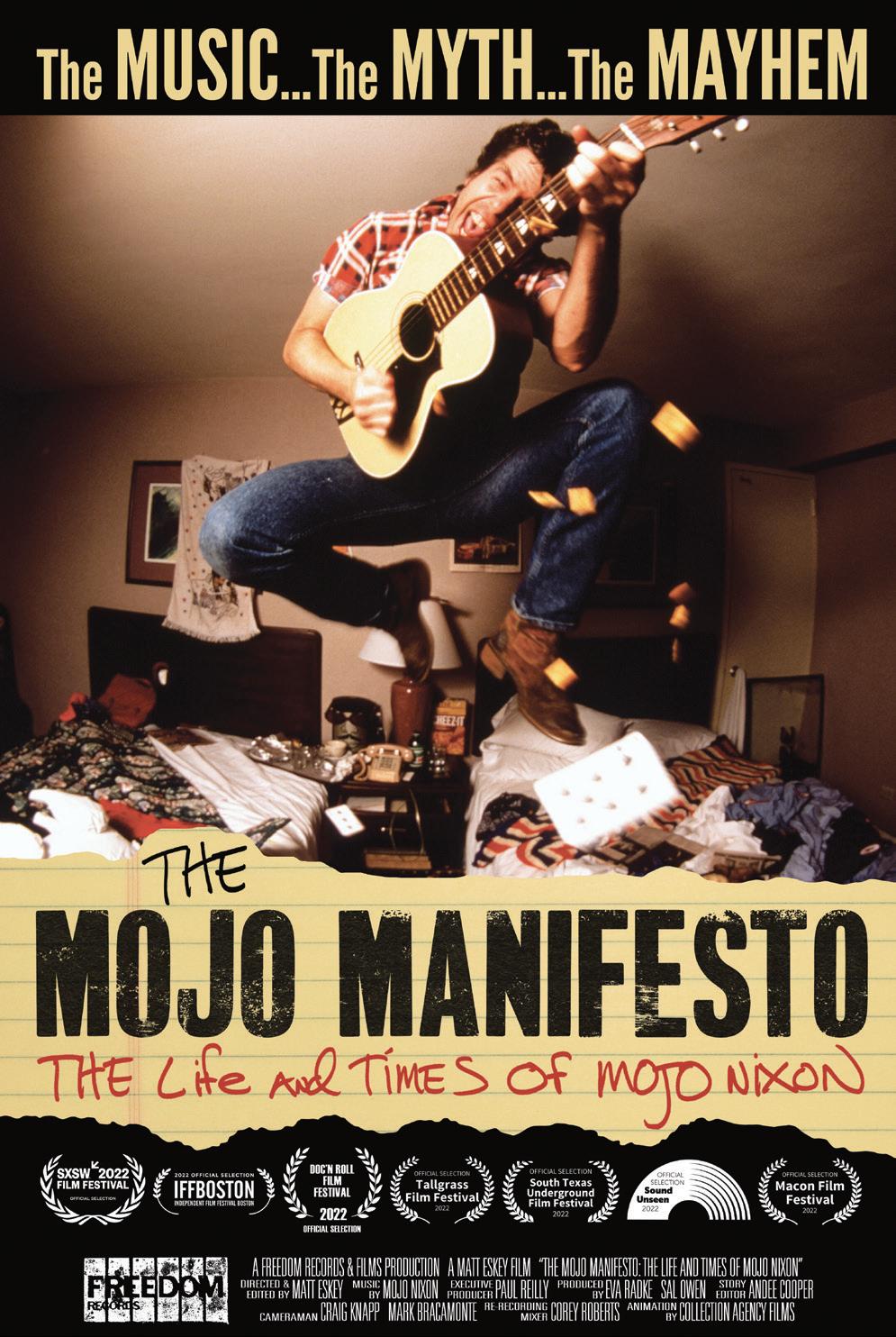
 By DAVID L. CODDON
By DAVID L. CODDON
As Mojo Nixon tells it, his first demo was recorded “within spittin’ distance of the Hotel Del.” That recording included two tunes that would become part of the Mojo legend: the outrageous “Jesus at McDonald’s” and “Mushroom Maniac,” about his friend and idol Country Dick Montana.

The year was 1985, and the “recording studio” was a house on Star Park Circle in Coronado occupied by the mother of Joey Harris, who, like Montana, was a former member of the San Diego pre-Beat Farmers band the Snuggle Bunnies.
“There was a garage that had been turned into a studio apartment on the side,” Nixon recalled. “We recorded it in one afternoon. It might have taken two or three hours.”
The demo would become the first album for Nixon and his mu-
« The full-length documentary film “The Mojo Manifesto: The Life and Times of Mojo Nixon” is expected to be available for streaming this spring. Above right: Three of the albums Nixon has made since 1985.

sical partner at the time, Skid Roper. And “Jesus at McDonald’s” was to be their first cult single. Years later, Nixon would return to Coronado, living there with his family for more than 10 years.
The man born Neill Kirby McMillan Jr. in Chapel Hill, North Carolina, was on his way to fulfilling a goal “to bring punk rock energy to American hillbilly music.”
Growing up in the South, principally in Danville, Virginia, and being the son of a father who ran a radio station, Nixon’s early life was rooted in music. “The more primitive, the more rural, the more back in the woods, the better,” he said of his youthful musical preferences. “When I was in junior high, I was crazy about Led Zeppelin. Led Zeppelin leads you to the Yardbirds, who lead you to Sonny Boy Williamson, who leads you to Howlin’ Wolf. Eventually that was the guy I wanted to be: the guy howling in the woods.”
He also envisioned himself as a showman, a combination of Richard Pryor and Jerry Lee Lewis he described as “some unholy amalgamation.” He named that “wild and free” entertainer Mojo Nixon.
Nixon’s story, one of audaciousness, drive and utter contempt for the conventions of the traditional music business, is
chronicled in a full-length documentary film by his former Toadliquors bandmate Matt Eskey titled “The Mojo Manifesto: The Life and Times of Mojo Nixon” (expected to become available for streaming this spring). It features interviews with Nixon past and present, footage from onstage performances including one at San Diego’s bygone Bacchanal club and snippets of video versions of some of his best-known musical spoofs.
His breakthrough “Elvis is Everywhere” brought Nixon to the attention of MTV in the mid-1980s. The fledgling music-television network asked him to create some promotional videos that it could use among its regular programming.
“They were playing very mainstream videos then,” Nixon recalled from his home, now in Cincinnati. “They were using me to appear to be hipper than they were. I remember thinking ‘I’m not going to sell out.’ So I made a list of 20 demands, and they agreed to all of them.”
While the exposure on MTV brought Nixon to the attention of a wider audience, the relationship inevitably didn’t last. When Nixon made a video for his song “Debbie Gibson Is Pregnant with My Two-Headed Love Child,” which co-
“I am very determined, and when people tell me I can’t do something, I’m determined to do it.”
MOJO NIXON
starred actor Winona Ryder, the network refused to air it.
“I was making fun of how they made their money,” Nixon said of the MTV executives. “They weren’t going for that.”

While “Debbie Gibson” and “Elvis” may be the most remembered of Nixon’s anarchic compositions, his fans can name many others including “Burn Down the Malls,” “I Hate Banks,” “Bring Me the Head of David Geffen” and “Don Henley Must Die.” There are quite a few more that aren’t fit to print.
One title that can be is “Gonna to Eat Them Words,” which Nixon wrote as a response to a girlfriend who had told him
that he needed to fall back on something else “when this music thing doesn’t work out.”
“I am very determined,” he said, “and when people tell me I can’t do something, I’m determined to do it.”
Nixon’s move to San Diego in 1981 was inspired by seeing the Penetrators in concert and their larger-than-life drummer Dan McLain (later known as Country Dick Montana). Two years later, Nixon played his first San Diego gig at the Texas Teahouse in Ocean Beach and became a fixture in the emerging local music scene, one that included Country Dick’s Beat Farmers and the Steve Poltz-led Rugburns.
Poltz recounted seeing Nixon for the first time at the Ken Cinema, performing in between a movie double feature. “I remember he was banging on a Sparklett’s water bottle. My mind was blown because one, I was going to see a movie and I wasn’t expecting to see this; and No. 2, the chutzpah this guy had. He was so in control of the audience.”
Nixon was all about “performance art. Every single thing was to perform, to put on a show for the people,” said his old friend Harris. “He wasn’t interested in how
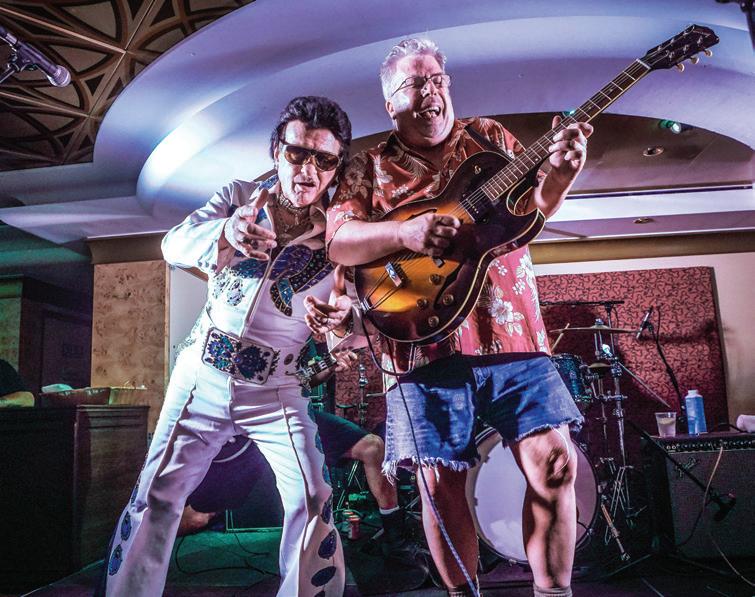
sharp the band looked or how they sounded. He just wanted to get out and entertain people. A lot of time he did it without a microphone because he’s so loud.”
After his MTV experiment, Nixon continued to perform in the ’90s but also did “a bunch of cockamamie things”: an acting role in the Jerry Lee Lewis biopic “Great Balls of Fire!” appearing Off Broadway as a snake-handling preacher in a production called “Gravel’s Spine” and playing a live-action Toad in the 1993 “Super Mario Bros.” movie.
By the end of the ’90s, Nixon — who’d been touring constantly with his backup band, the Toadliquors — was losing his mojo for performing onstage. “I was afraid that if I stayed on the road and was full-time Mojo, I’d only last another two weeks,” he said. “I could have gone healthy and turned Mojo into a cottage industry and played safe parties. But no one wants to see live-forever Mojo. People came for the chaos.”
Not surprisingly, the son of a radio station owner took his act to radio. San Diego stations balked. “The Mojo Myth was so powerful they all thought I lived in a van down by the river,” he said. “Nobody

would hire me. So I had to go to Cincinnati.”
After three years there, Nixon returned to San Diego when he was hired by the classic rock station KGB-FM, replacing longtime DJ Jim McInnes. “I did that for two years,” he said with some obvious disdain. “Every time I played Styx or Journey, a small piece of my soul fell away.”
McInnes, a musician himself who today hosts a weekly music show titled “Vinyl Resting Place” with Rez Radio, holds no grudges. He calls Nixon “one of a kind, that’s for sure. He just seemingly out of nowhere created this character called Mojo Nixon and started going out and
doing it and not caring whether anyone liked it or not.”
The 65-year-old Nixon, who is married (the wedding was held at a go-kart track in Chula Vista in 1989) and has two grown sons, resided in a rented Coronado home from 2003 to 2016.

“I figured we should live in San Diego’s hidden gem,” he said of that residency. “Behind enemy lines.”
For the last 18 years, Nixon has been working for satellite SiriusXM Radio’s Outlaw Country station. He has a featured show “The Loon in the Afternoon” and
another, “Manifold Destiny,” on SiriusXM’s NASCAR Radio channel.
After a careening ride of a lifetime and a permanent place in the psychobilly culture, Nixon says he’s only “almost famous.” But he does look back on his musical career as successful, “especially considering how limited my musical talent is.”
Does he see himself as a cult hero? “Yes.
When my bass player made the movie (“The Mojo Manifesto”), I said, ‘Just make the cult happy.’ ” ■
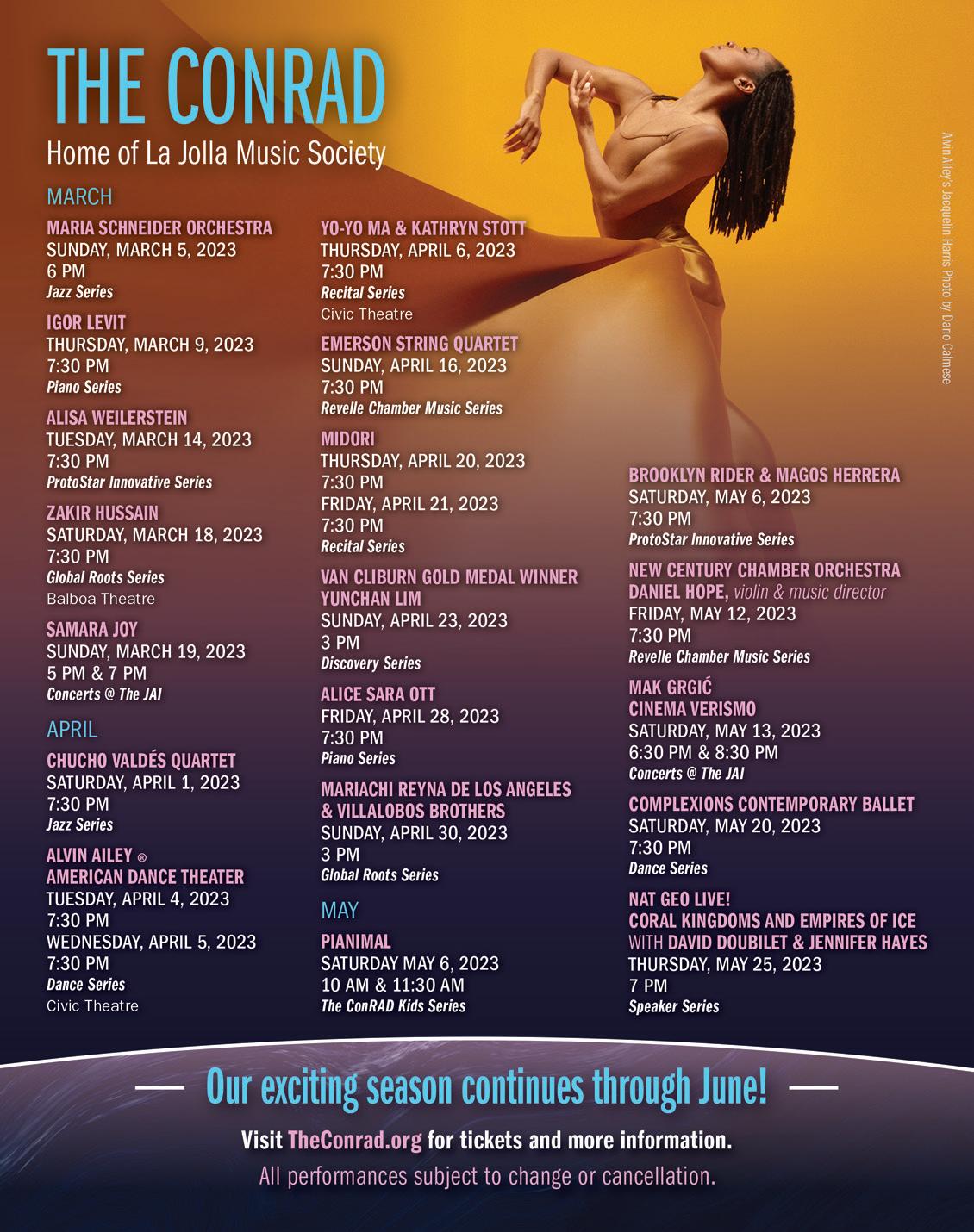
It’s no secret that Coronado has a superb public library. But do you know about all the resources that are accessible without ever leaving your home? The Coronado Public Library has a wealth of online materials available to cardholders. Download the latest e-books and popular magazines for recreational reading or stream movies. If you want to learn new career skills or take up a new hobby, online courses are available covering hundreds of subjects. There are also resources to dig into your ancestry, delve into history, research business and finance or learn a new language. Plus, find information on thousands of colleges and take practice admission tests and tutoring courses. Go to coronadolibrary.org, scroll down to E-Resources and click on All Resources. As the saying goes, the world is at your fingertips. ■


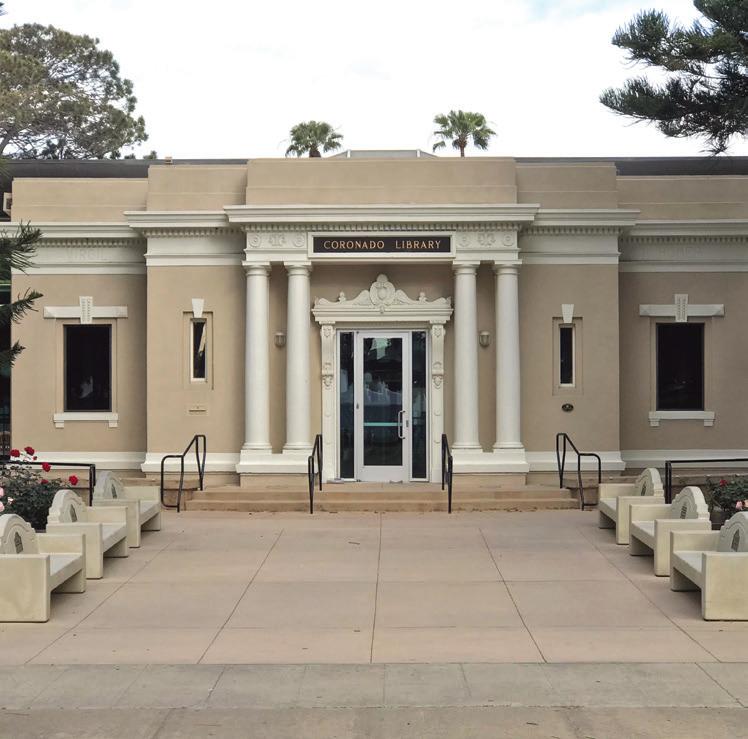 LESLIE CRAWFORD
LESLIE CRAWFORD




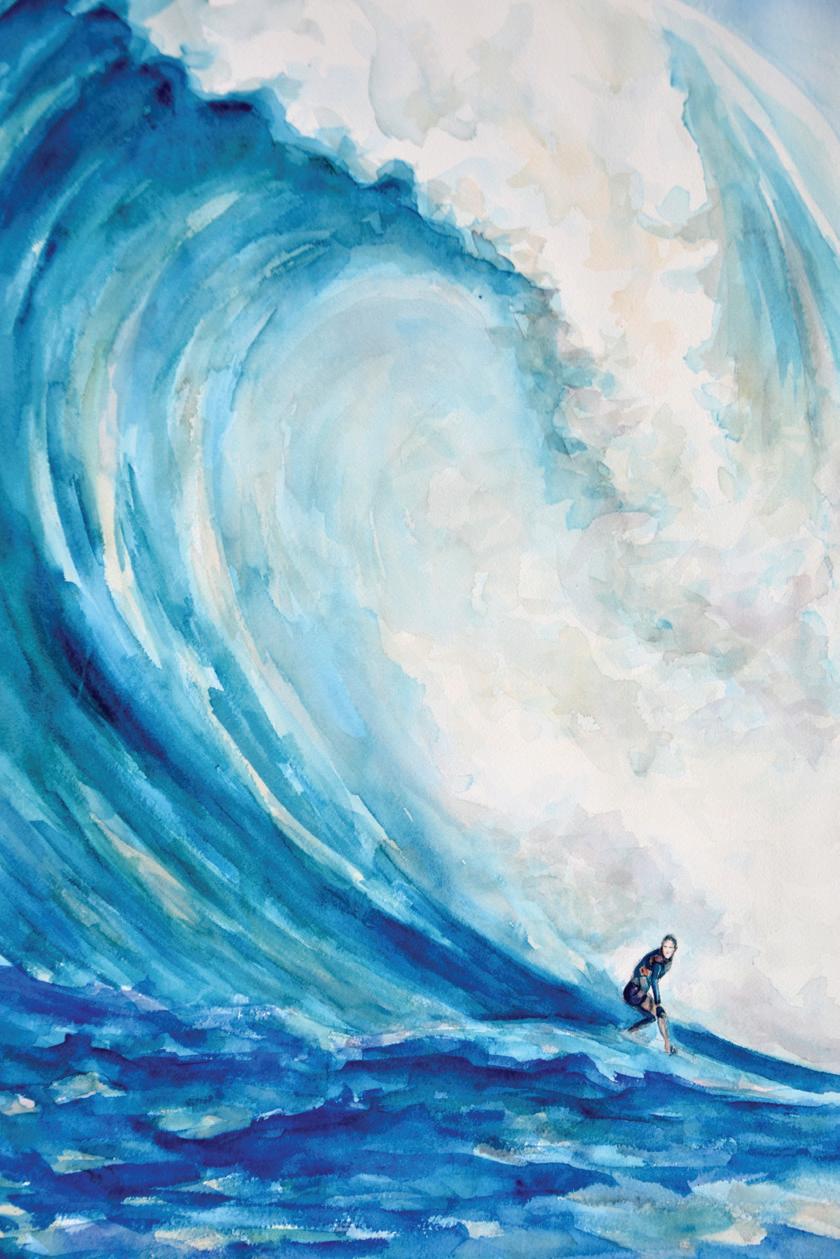
Cathy Surgeoner Deibler’s wanderlust started at a young age with postcards she received from her globe-trotting great aunt. The Ballyclare, Northern Ireland, native graduated from the University of Ulster with a degree in applied and fine art. But the urge to travel prompted her to leave for New Zealand for two years. There, she learned how to surf and sail, discovering her love for the ocean — all things that have had a big influence on her artwork.
Surgeoner Deibler, who worked in the television and film industry prior to her New Zealand jaunt, sketched on her travels, which later included a teaching opportunity in Japan. But it wasn’t until she was married, living in Monterey, California, and had her first child that she took up art again. Surgeoner Deibler took a community college course there and started printmaking.
She had landed in Monterey with her now-retired Navy
OF CATHY SURGEONER DEIBLEROctopuses are among Cathy Surgeoner Deibler’s favorite subjects. She's also working on a series of female big-wave surfers (left).


officer husband, Charles Deibler, after they married in 2011. They two had met in Japan. The couple, who moved to Coronado three years ago, have two children, 7 and 10.
Because the printmaking process requires chemicals, Surgeoner Deibler switched to watercolor, an easier medium with two youngsters. But she wants to add a studio to their home, which they bought last year, allowing her to return to printmaking.

She took some time to talk about her
journey to become an artist and Coronado resident.
Q. You chose an art major at university. Did you always know you wanted to be an artist?
A. I wanted to be a businesswoman. I didn’t even see artist as something I could pursue. I remember thinking it’s just my hobby. I took math and physics as well as art, thinking I could prove that I was really intelligent and get an engineering degree like my sister. She is a civil engineer, and so I felt like I had to be doing something
else, but art just kept coming back to me. And I thought, ‘Well, I’m really good at this,’ so I pursued it. I had no idea what I was going to do after college. I think I had more of a passion of wanting to travel.
Q. Why did you decide to go to New Zealand for your first extended trip from Northern Ireland? How did that trip influence you?
A. When I was about 26 years old, I was starting to get more freelance work in art and design, and I felt like if I don’t go now, I’m going to get stuck. I bought a ticket to New Zealand and, at the time, I didn’t even realize it was two islands. I just decided to go to the other side of the world and take an adventure by myself. It was such an amazing experience. I completely fell in love with New Zealand.
I learned to surf and to sail there. I had all these experiences that I would never have thought of doing back home. All these doors opened for me. I still surf.
I wanted to see places. And kind of in my head, I was looking for somewhere else to live as well. I can remember walking along the beach and thinking, ‘I could see my grandchildren here one day.’ But I did not fall in love with a Kiwi. I ended up falling in love with an American.
Q. Your Instagram page (@cathysurgeoner) has numerous images of octopuses. What is it you enjoy about them?
A. They’re such great creatures to paint. When you’re drawing their faces, they sometimes look like old men. They are just real characters, and I love the tenta-
cles. I love intertwining the tentacles and manipulating them.
We made the garden in the shape of an octopus. When we took the grass off, I put the border that you use for (flower) beds in the shape of an octopus. We planted all succulents in the octopus shape and then the silver carpet ground cover everywhere else. Fingers crossed when it all grows in, you’ll see the actual tentacles coming across the garden. We did seven tentacles so I’m going to paint on the side of the house for the eighth tentacle.
I’m going to be the octopus lady, but I definitely love painting and drawing them.
Q. What other projects are you working on?
A. I’m working on a long-term series. I started painting big-wave surf women. I’m developing my watercolor skills and really wanted to get the ocean looking pretty good. I’m building up a series of these women because I find them such an inspiration. I’ve been surfing about 12 or 13 years on and off, but I still consider myself a small-wave surfer. When I watch the women surfing the big waves, I’m just blown away.
I definitely am following my heart with the style and what I paint and like.
Q. What do you like about watercolors?
A. I love watercolor because it’s pretty. It’s quite hard to do, but I love the layers and the transparency of watercolors. It’s kind of unforgiving. If you make a mistake, that’s it. But if you get something right, it feels really special.
Q. Now that you have bought a home in Coronado and are planning on staying, how are you getting involved with the local art community?
A. I do custom art lessons at your home with a small group. I’ll come to your house and bring the equipment and we’ll do watercolors. I’ll take you through my process and teach you basic skills. I highly

encourage everyone to just find their own style.
I just volunteered to go and sit on the board of CoSA (Coronado School of the Arts). I’m trying to get involved with the arts here because there’s quite a lot going on.
Up until last year, I didn’t know if we were going to be here or not. ■





March 1, 1913
The Coronado Strand newspaper announced that construction was about to start on the first house in the district east of Pomona Avenue. The two-story home with eight rooms, two sleeping porches and two bathrooms was planned for Kate Rogan by the San Diego Construction Co. for $6,000. The site was described as lot 2, block 80, and was on the point jutting into Glorietta Bay. Plans to grade and pave all the streets in the area east of A Avenue with decomposed granite had made that part of Coronado desirable.
March 1, 1920
The U.S. Navy's dirigible Airship C-6, the first lighter-than-air craft constructed on the West Coast, took flight. The dirigible measured 196 feet in length with a capacity of 35,000 cubic feet of gas. The C-6 was the first of a fleet of lighter-than-air ships stationed at North Island. A dirigible hangar was constructed in 1919. A crew of six sailed the C-6 over the coast, then over Coronado, reaching an altitude of 1,000 feet. Thousands of people stopped to marvel at the wonder of this new type of aircraft.


March 4, 1943
The Hotel del Coronado led the local Victory Garden campaign by planting vegetables in all the spare ground on the property. The idea was sponsored by the American Women’s Voluntary Services in Coronado, and many citizens also took up the idea by growing broccoli, corn, tomatoes, string beans, cabbage and cucumbers.
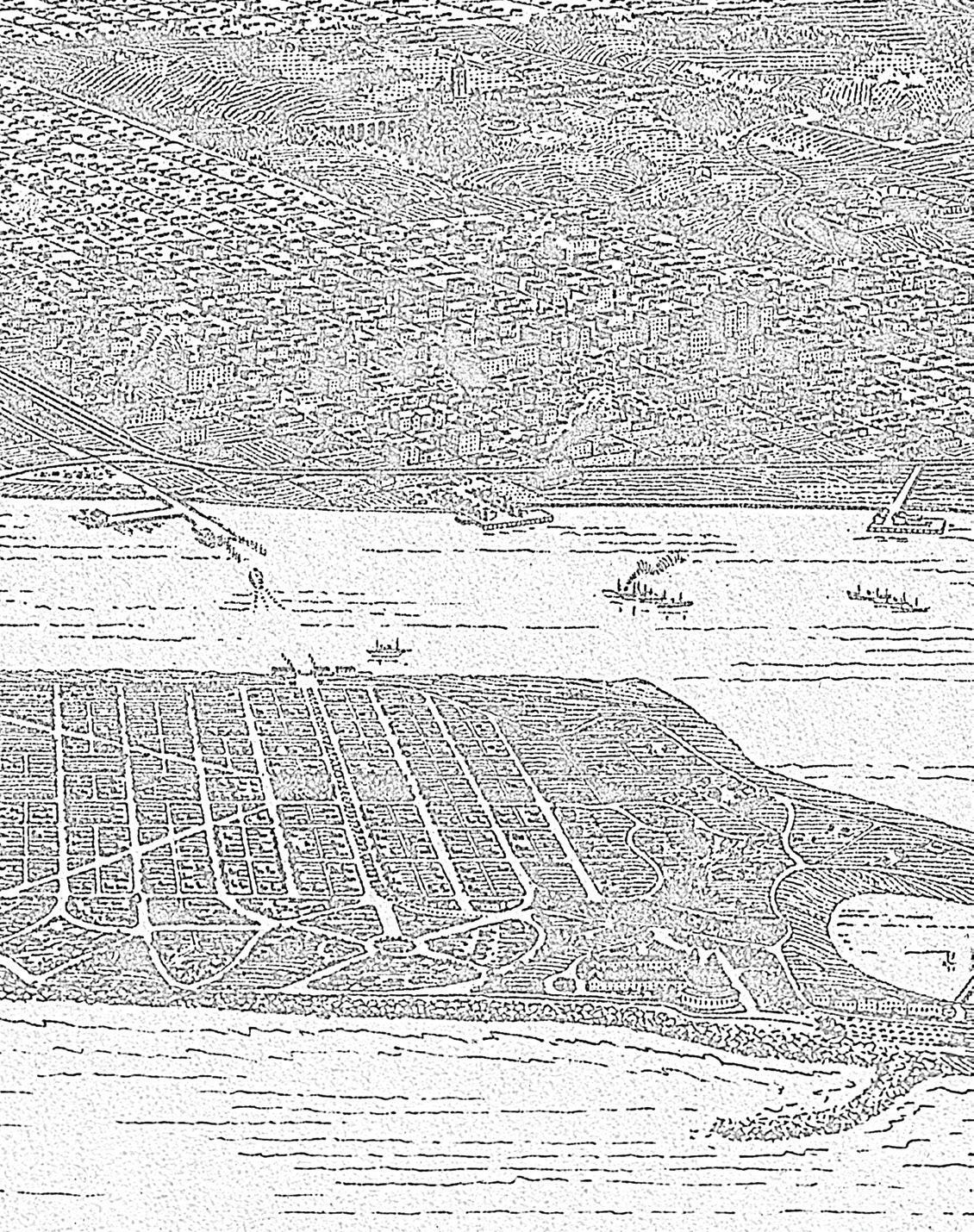
March 7, 1973
The three remaining Coronado Navy prisoners of war — Capt. Ernest M. Moore Jr., Cmdr. Edward H. Martin and Cmdr. William R. Stark — returned home to their families. Capt. James Stockdale and Capt. Harry Jenkins had returned three weeks prior along with Cmdr. Brian Woods, whose parents and a sister live in Coronado. Woods was the first POW to reach American soil. He was released and fast-tracked to the U.S. to see his critically ill mother, Anita Woods, in the Coronado Hospital.
March 9, 1976
Virginia Bridge takes office as the first woman elected as mayor of Coronado.
March 17, 1933
Renowned opera singer Inga Ørner returned to her Coronado home after nearly a year in England and France. Orner debuted her operatic career in Italy and sang in leading roles at New York’s Metropolitan Opera for three years. “Although I have been fortunate enough to visit a great many corners of the earth, I have not yet found a spot
as charming as Coronado. There is no place that can compare with it,” she told the Coronado Journal.
March 24, 1906

Coronado’s streets flooded after 2.25 inches of rain fell, and Ocean Boulevard was heavily damaged from heavy surf.
March 31, 1923
The Union Oil Co. revealed plans to construct an oil-and-gas station on the corner of Ninth Street and Orange Avenue, which was “promised will be one of the finest and most modern in Southern California,” according to the Coronado Strand. The station, “drawn up with a view to making the building harmonize with the natural and architectural beauty of Coronado,” would also include restrooms for its patrons. ■
Inga Ørner in a 1913 photo. HERMAN MISHKIN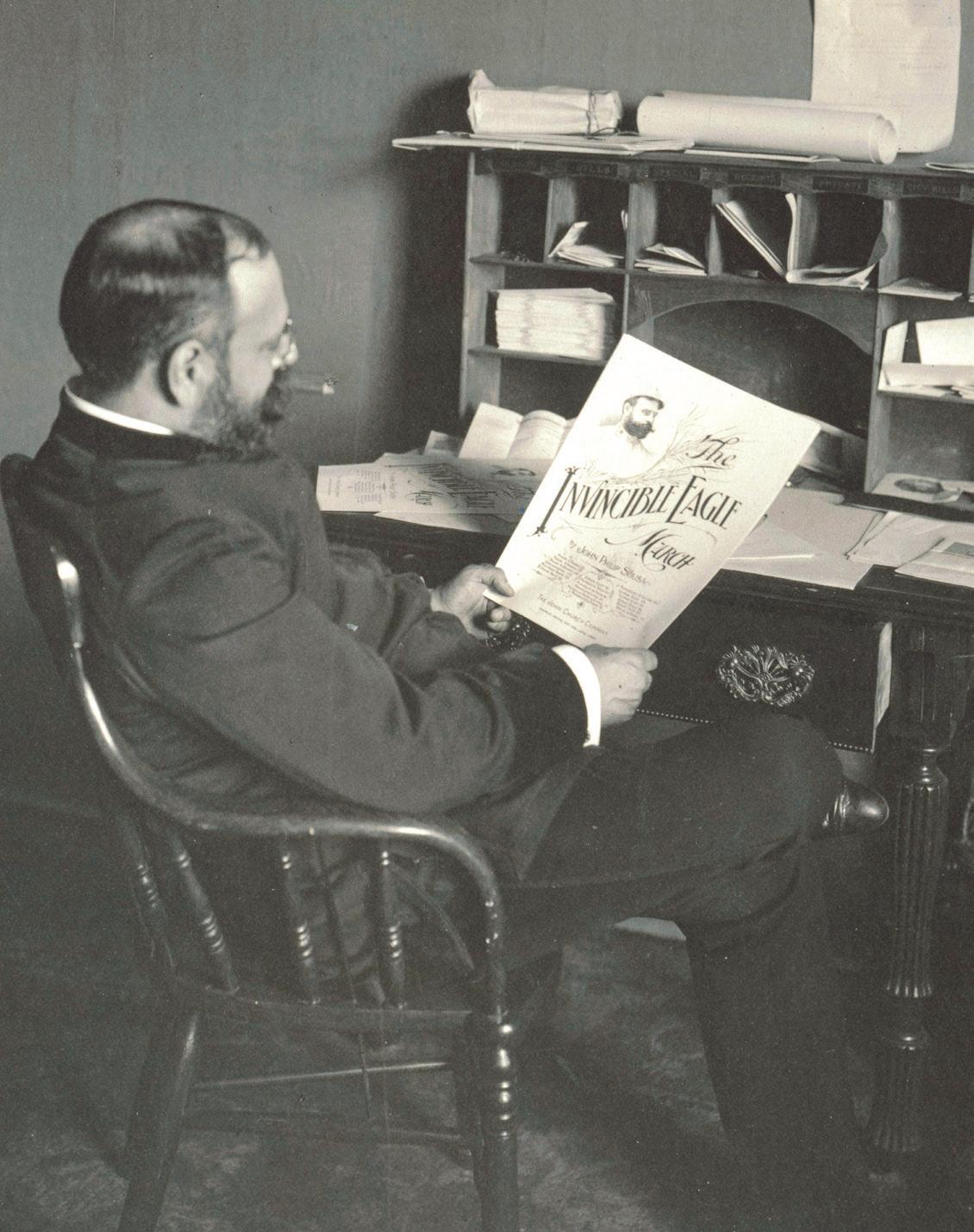
The rumor started with a 1948 poem by Doris Skinner Treadwell, who dedicated her piece to “all of the old employees whose loyalty over the many years made possible Hotel del Coronado.” The poem gives a chronology of the hotel, its activities, staff and includes Tent City where John Philip “Sousa played there in nineteen ten.”
Treadwell had lived at The Del in her youth from 1907 to 1927 and returned to the resort frequently. She was the wife of Edward Treadwell, a prominent San Francisco-area attorney, state assemblyman and one-time mayor of Burlingame in Northern California. Her poem was found in the Hotel Del archives.
Sousa was the leader of the U.S. Marine Band and had developed a strong reputation as a bandmaster by
 « John Philip Sousa looks over the "The Invincible Eagle March" sheet music at his desk. LIBRARY OF CONGRESS » Sousa conducting in 1911. WIKIMEDIA
« John Philip Sousa looks over the "The Invincible Eagle March" sheet music at his desk. LIBRARY OF CONGRESS » Sousa conducting in 1911. WIKIMEDIA
1892 when he came to San Diego to play at the Fisher Opera House on April 10. By the end of July that year, Sousa was ready to try something new and resigned his position to form his own band.
The Sousa Band, which performed to sold-out audiences across the country and the world, combined elements from brass bands, military bands, beer hall bands and symphony orchestras; it remained successful for 40 years. As its conductor, Sousa became one of the most well-known musicians of his time. He died on March 3, 1932, at the age of 77.
Sousa returned to San Diego with his band four times between April 1894 and March 1899, always playing at the Fisher Opera House and staying at the upscale Horton House or Hotel Brewster. Records show that during his April 1894 visit, Sousa journeyed to Coronado by carriage and visited the Hotel Del.
In 1900, Tent City opened in Coronado, and Henry Ohlmeyer organized and conducted the popular Tent City Band. Ohlmeyer began his career in San Francisco, then in Riverside teaching violin and leading the orchestra at the Loring Opera House and the Mission Inn.
He knew Sousa personally and, in tribute, started an annual “Sousa Night” in 1900, which drew crowds to Tent City second only in popularity to the Fourth of
July over the years.
Sousa and his band toured across the U.S. and Europe from 1900 to 1905. In 1905, Franz Helle, a flugelhorn soloist who had been with the Sousa band since 1896, joined Ohlmeyer at Tent City. Other Sousa musicians followed including Alice Raymond (cornetist), Nicholas Oeconomacos, (clarinetist) and Herbert Clarke (cornetist). Tent City only operated between June and August, so musicians could play for Ohlmeyer, then rejoin Sousa.
Ohlmeyer would often write Sousa, asking to extend a musician’s stay and Sousa would oblige.
In October 1909, Sousa and his band returned to San Diego and played at the Garrick Theatre, which had opened at Sixth Avenue and B Street in 1907 and quickly became the choice of big touring shows.
Throughout 1910, Sousa traveled the throughout the country leading concerts. He checked into a sanitarium in November for a rest, then began a world tour in December 1910.
So how did Treadwell come to believe Sousa had played at Tent City in 1910? Sousa was world famous, and his movements were tracked meticulously through newspapers.
“Sousa Night” in 1910 was a large, well-publicized event. It took place on
...Sousa became one of the most well-known musicians of his time.
Tuesday, July 26 and drew thousands dressed in gala patriotic attire. There were colored lights, electric flags, a large crown and Sousa’s portrait framed in lights over the band shell.
Both Helle and Clarke (who was also assistant director to Sousa) were featured soloists that evening. There was no mention in the papers of Sousa being there nor does he appear in The Del’s historic records.
It was such a spectacular event that perhaps the 13-year-old Treadwell believed that Sousa himself was there, and it eventually became Hotel Del legend.
Ohlmeyer left Tent City at the end of the
1914 season and returned to the Mission Inn. “Sousa Nights” continued in Coronado until the 1918 season, but by 1924, the Tent City Band had dissolved.

Sousa, meanwhile, continued touring and returned to San Diego in 1922, 1924, 1926 and 1928, performing at the Spreckels Theater and staying at the U.S. Grant Hotel.
Aside from that brief visit to The Del in April 1894, there is no evidence he ever returned to Coronado, much less conducted the Tent City Band. ■

 By LESLIE CRAWFORD
By LESLIE CRAWFORD


Over the next few months, gardens will start to come alive again. With the days getting longer, for many of us, the itch to get our hands in the dirt is real. Weeds will be out in force, especially with all the rain we got earlier in the year, so weeding should be a priority to make sure plants don’t get choked out.

It’s time to get ready for the Coronado Flower Association’s annual Home Front Judging (March 31 to April 2) and Coronado Flower Show (April 15-16). If you are looking for inspiration, check out one of the many garden tours throughout San Diego County this spring. Organizations offering tours include the San Diego Horticultural Society, the California Native Plant Society, the La Jolla Historical Society and the Mission Hills Garden Club. It’s a great way to get ideas.
To help make your garden look its best, we’ve put together a to-do list for the next few months.
Ladybugs are beneficial in the garden, keeping aphids in check. Sweet peas (left) are easy to grow and so satisfying when they bloom in the spring. Continuous clipping of flowers will promote a longer blooming period.
• Fertilizing is a big focus in March. The rain we’ve had is a good thing, but a lot of nutrients get washed away. Nitrogen, especially, has been depleted. Consult with your favorite nursery about which fertilizers you should be using for different plants. It’s important to feed plants, because they are getting ready for some major growth as we head toward summer.
Be sure to give edible, leafy greens enough water and fertilizer, otherwise lettuces will be tough and bitter.

• We are probably at the end of our rainy period, so make sure your irrigation is turned on once you notice the soil is drying. Make any needed repairs to your system before the weather heats up.
• Houseplants need some TLC after being inside with windows closed and heaters on. Dusty leaves and accumulated minerals in the soil can leave plants vulnerable to disease and pests. An easy way to refresh them is to put them in the shower and wash them down liberally to clean the leaves and flush the soil. Then add some fresh soil as a top dressing.
April is National Garden Month and the height of flower shows and garden tours in Southern California. Remember, if you want to enter growing plants in a show, clean detritus around the plant and clean off the outside of the pot, too. The judges pay attention to that kind of thing.

• Warmer weather means that pests are waking up, ready to feast in your garden. Aphids are attracted to fresh growth and will start to appear on roses, flowers, vegetables and fruit trees. Aphids suck fluid
out of plants, creating a sticky honeydew that attracts ants, which in turn protect the aphids.
Ants indicate a higher level of aphid infestation so keeping them under control helps keep the aphid population down. Blast plants with water first, but if the problem gets out of hand, be more aggressive with an insecticidal soap. Keep a spray bottle of Safer insecticidal soap handy to spot treat when needed.
• If you have plants with frost damage (yes, we do get frost on occasion in Coronado), wait to prune the dead foliage until
This potted epiphyllum is happy on a north-facing wall with an hour of morning sunlight. Epiphyllums are native to tropical forests and don’t like to dry out. Water them regularly but don’t let them sit in water.

you start to see new growth.
• Prune spring flowering shrubs such as azaleas, camellias, forsythia and lilac when they finish blooming, because they bloom on year-old growth.
• Roses need about 1½ inches of water twice weekly this month. They are working hard with all the blooming that’s going on.
• Mulch a 2-inch layer of organic matter around your annuals, perennials, trees and shrubs to suppress weeds and hold in moisture. When the weather warms up, it will also keep the roots cool. Mulching
around roses is a great way to keep them evenly moist and help prevent fungus growth by reducing splashing water and spreading spores.
Do not mulch around warm-season vegetables right now because they really need the heat around their roots.
• The weather has warmed up enough to plant melons, squash, tomatoes, peppers, beans and eggplant.
• Epiphyllums are still blooming, so continue to cut off faded blossoms and mist frequently in hot weather, but don't overwater. A good rule of thumb is to water when the soil is dry 1½ inches down.
• Now that cymbidium orchids are done blooming, it is time to divide and repot if they are overcrowded.
• Prune and feed your camellias and azaleas with an acid fertilizer formulated for these plants. A good rule of thumb is to apply at half strength, feeding every six to eight weeks until the end of September.
• Caterpillars can be destructive, but keep in mind a lot of them will turn into butterflies. Have a bottle of BT (bacillus thuringiensis) handy if you have an infestation, to keep the nuisance caterpillars under control.

• Who doesn’t need more ladybugs in their garden? Ladybugs are aphid munchers. They are a bit pricey, but get a little bucket of these beauties and invite the neighborhood kids over for the release.
Priceless. ■
March is a good time to plant sunflower seeds for blooms around the Fourth of July. Then stagger your plantings over the next few months with varieties of different colors and sizes. You’ll have blooming beauties into the fall.
Snails and slugs love to munch on fresh seedlings, so start seeds in a flat with seed starter soil and let them grow until they are 5 to 6 inches tall before planting them in the ground.
Sunflowers are one of the most satisfying plants to grow. They are easy to nurture, grow quickly and are spectacular

to have in your garden, attracting bees as the flowers open. Sunflowers are also a great teaching tool. The seed patterns in the middle of the flower are an excellent example of the Fibonacci sequence, a mathematical sequence where the next number is found by adding the two numbers before it. This sequence, which creates a spiral, is found everywhere in nature. When sunflowers have finished blooming, cut the heads off the stalks and lay them out for the birds to pick at, completing a perfect cycle in the garden.
— LESLIE CRAWFORD
OSPREYS, also known as fish hawks, are found on all continents except Antarctica, nesting near bodies of water. They are large raptors with a body length of 24 inches and a wingspan of almost 6 feet. They make a distinctive chirping or whistling sound.
Ospreys are specially equipped to catch fish — their primary food — but will also eat snakes, rodents, turtles, rabbits and other small mammals. They can detect fish underwater from more than 100 feet in the air, plunging headfirst into the water to catch their prey. An outer toe is reversable to help grasp prey with two toes on each side of the catch, a capability unique to ospreys and owls among raptors. Ospreys also have barbs on the soles of their feet to aid in grasping.
Fifty years ago, ospreys were rare in the San Diego area due to poisoning from pesticides, which is more controlled now. By 2001, ospreys were more abundant in the region than at any other time in history, and nesting poles have been erected throughout the area to help house them. Look for a nesting pole at the Coronado Golf Course near Stingray Beach and at Naval Amphibious Base Coronado, next to the perimeter fence by the city boathouse. The osprey pictured here was at the Coronado Shores beach. ■
Class: Aves
Order: Accipitriformes
Family: Pandionidae
Genus: Pandion
Species: Pandion haliaetus
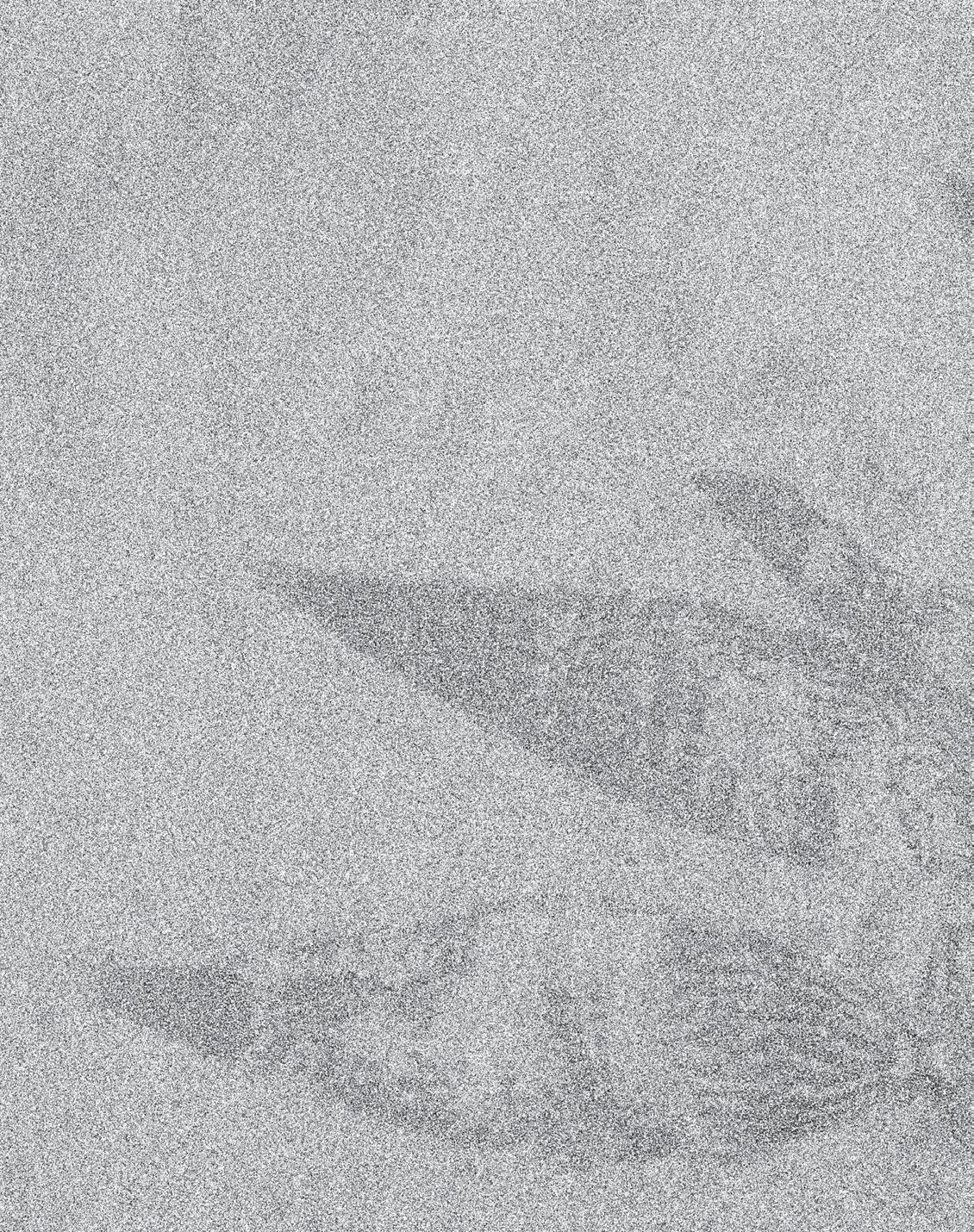
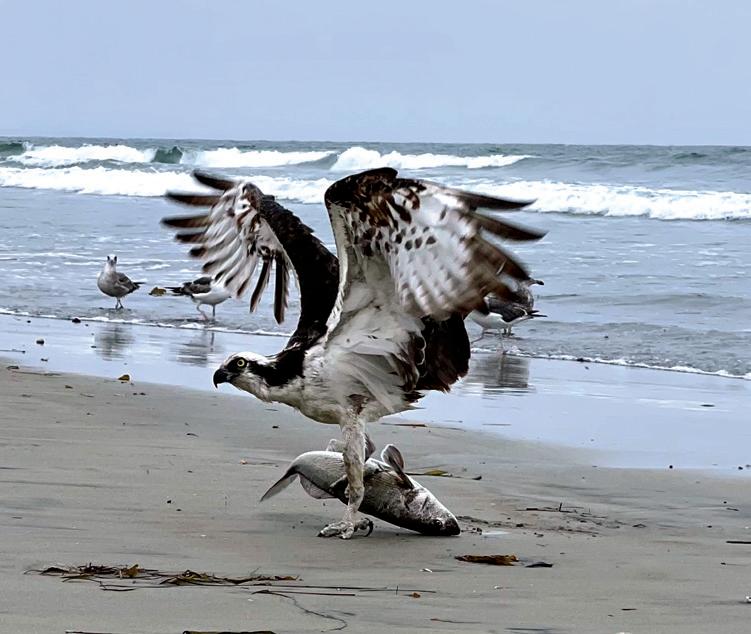
CORONADOBEACHCOMBER
Coronado’s shoreline changes with the weather, tides and time of year. Coronadobeachcomber explores our shores daily on the beach or at the bay, paying attention to the interesting animals, shells and sea life. Follow @coronadobeachcomber on Instagram.

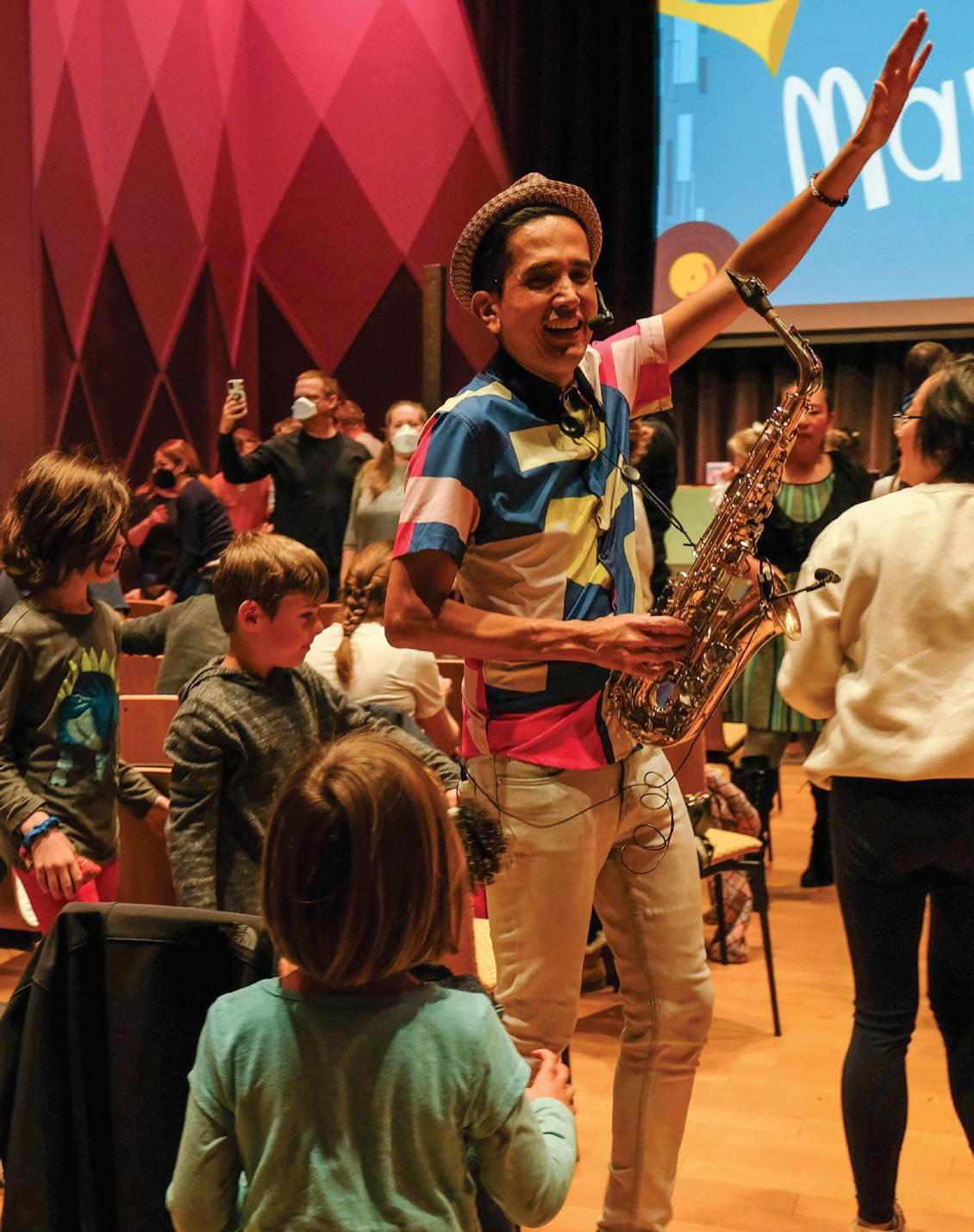
On a relatively quiet, mid-pandemic morning, Dawn Petrick with the La Jolla Music Society came across a news story about a veteran with post-traumatic stress disorder who had been invited to a symphony performance and how that single performance helped him heal. It changed his life.
It was then that Petrick, the director of communications, decided to facilitate similar opportunities among the San Diego military population.
“It was truly important to me that those in need within the military community could find something new that they could
try to connect with in a healing way,” she said.
After some research, Petrick and her team at the La Jolla Music Society decided to work with the Navy Gold Star Program. The Gold Star program provides support to survivors — the spouses, mothers, fathers, children and siblings — of fallen service members. The number of Gold Star families is not public record but is understood to be substantial. The nationwide network includes one office in Coronado and two in San Diego.
With live concerts back on schedule for the 54th season, the La Jolla Music Society

is offering Gold Star families tickets for any concert of their choice. This year’s sponsorship is for 100 tickets, totaling $7,500, for performances through June 23. Qualifying family members interested in obtaining tickets need to contact the Navy Gold Star Foundation.
“We have 64-plus shows this season that cover everything from classical to opera to ballet to our speaker series. There is something for everyone, and it is great to see that our Gold Star families will be able to choose from a variety of performing arts genres,” said Stephanie Thompson, communications and public relations manager.

The music society’s state-of-the-art facility, the Conrad Prebys Performing Arts Center in La Jolla known as The Conrad, opened in 2019. The La Jolla Music Society was founded in 1941.
The Music Society’s Gold Star program started in January. “Some folks did already go to three different concerts,” Petrick said.
Music therapy is not a new concept. It has been in use in the military for more than 70 years. The American Music Therapy Association, an organization based in Washington, D.C., representing more than 6,000 music therapists nationwide, recently presented research to military leadership on state-of-the-art music therapy, providing recommendations for program development, research and practice.
One leading music therapy initiative is the National Endowment for the Arts’ Creative Forces. Creative Forces works in partnership with the Department of Defense and Veterans Affairs to improve the health of military and veteran populations exposed to trauma through creative arts therapies.

For Petrick, the Music Society’s inaugural program with the Gold Star families is a vision fulfilled.
“This sponsorship can open others from our local military communities who have experienced adversity and/or trauma to the exploration of performing arts, while at the same time, connecting them with a largely untapped force for healing,” she said. ■


